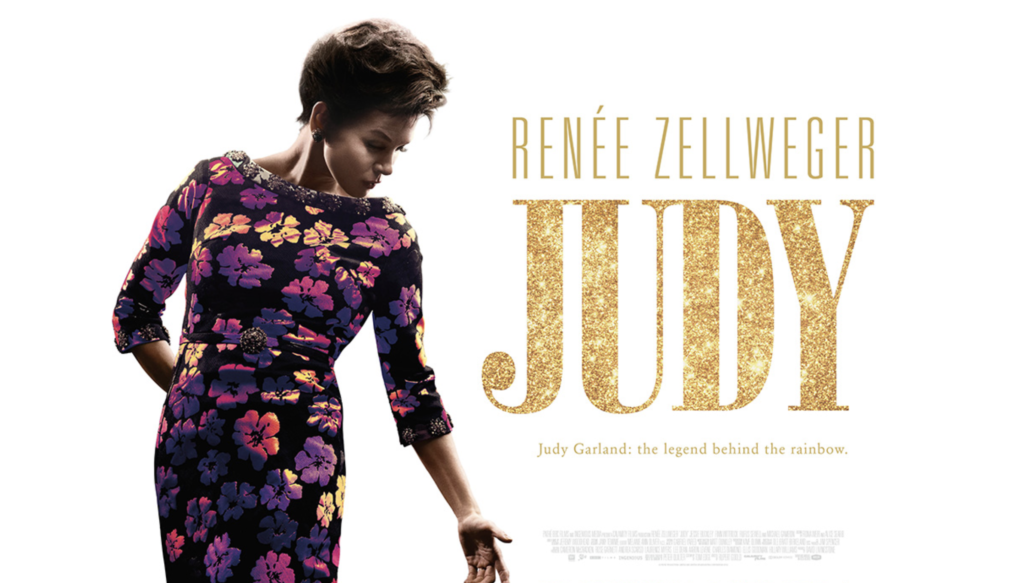
Image: Pathé
It’s 1968, and American entertainment icon Judy Garland is not having the best time. She’s broke, in debt, can’t find film work thanks in part to her alcoholism and other addiction issues, in a custody battle over her non-Liza Minelli children, and is… having trouble with her living situation.
The one good gig she can land? A concert series in London, where she still has a passionate fanbase. The trouble is keeping her drinking and sleeping pill issues and crippling anxieties in check long enough to put on a show every night.
And where did all of these problems come from? The answer comes from a series of flashbacks to her Dorothy days, in which a shrill chaperone enforced Louis B. Mayer’s rules about food, fun, or being able to live without pills (he was against all three if they meant Dorothy was late to set or a pound heavier), helping set her on the path to where we find her in the present… six months from dying at age 47.
Louis B. Mayer was trash.
So I get why Renée Zellweger won every acting trophy that was being offered last awards season, even above Saoirse Ronan’s electrifying performance in Little Women. She gives us a Judy Garland constantly one step at best away from total collapse who has to put on a brave face for the world, the struggles of keeping it up, the depths she falls to when the facade collapses… and she also has to belt out numbers like Judy herself. I’d make some comment about how Oscar bait-y the role is, but honestly I don’t want to detract from what a brilliant performance Zellweger is giving by implying that she only won because of some sort of King’s Speech award-bait nonsense. You know, the reason the director of King’s Speech has an Oscar despite every movie he’s directed since then, including but oddly not especially Cats, proving he is not good at it.
This is how biopics should work. It’s the better approach. There’s no “Don’t you know that before Freddy Mercury sings, he has to remember his entire life?” framing device, none of the worn-out hallmarks of musical biopics that Patrick Willems can explain for you if you’re curious. Suffice to say every last one of them can be found in Bohemian Rhapsody. With the exception of the flashbacks to her Dorothy days, we’re focused on this one point of Judy’s short, sad, life: her last big gig before she died, how it went wrong, and why it’s not surprising a barbiturate overdose brought her down.
And man those flashbacks are harrowing. They’re shot in a dream-like way, making them feel like distorted memories she’s trapped in. Her first date, her sixteenth birthday, all illusions sculpted by Louis B. Mayer to sell the image of his young star, with any actual pleasure these things might involve stripped out and replaced with stern chidings and pills from her chaperone, who tries to forbid even tasting a cheeseburger. And then the terror that the looming figure of Mayer represents… especially when he gets a little handsy telling her that she sings from the heart. (Garland’s unfinished, unpublished autobiography reportedly confirms this was a habit of his. Louis. B. Mayer. Was. TRASH.)
I want to move on to the next thing now, but before I go, just know that the emotional heart of the movie comes from any scene with the middle-aged gay couple who have bought tickets to every London show.
Good movie. Bleak movie, but good movie.


One thought on “My Quarantine Watchlist: Part One”